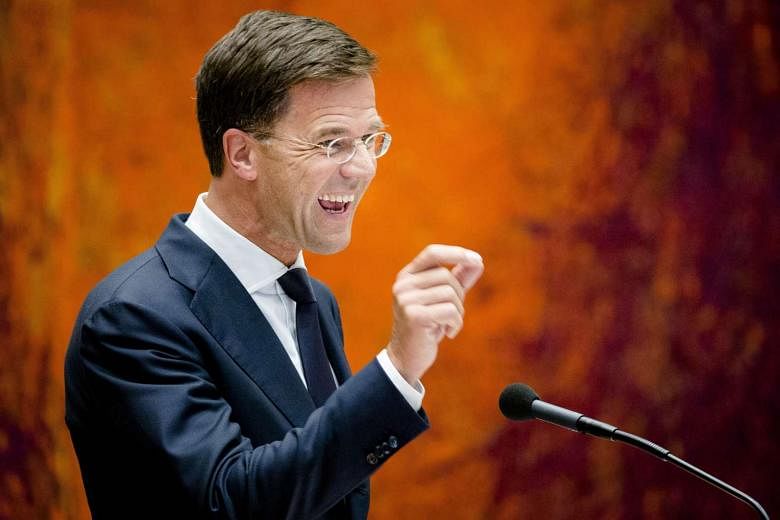AMSTERDAM (REUTERS) - The Netherlands endorsed a third bailout for Greece on Wednesday as both the Cabinet and parliament approved the step after a bruising debate in which Prime Minister Mark Rutte's credibility was challenged.
Although a majority in parliament supported the €86 billion (S$133 billion) bailout, it is unpopular with Dutch taxpayers, especially Rutte's own conservative base, just as in Germany whose parliament on Wednesday also ratified the rescue for debt-ridden Greece.
Rutte was left explaining why he had reversed course on a pledge he gave during his successful 2012 election campaign that he would give "not one more cent for Greece."
Populist Geert Wilders, whose Freedom Party frequently bests Rutte's Liberals in national polls, dubbed the Prime Minister "the Pinocchio of the lowlands" and said Rutte would have lost the 2012 vote had he admitted then that he would support another bailout for Greece in a pinch.
"The situation is now totally different than I estimated it in 2012," Rutte responded.
"In politics you have to take responsibility for things, and it sometimes happens that promises can't be kept."
Rutte later on Wednesday survived a no-confidence vote and parliament rejected a motion that Greece should be denied any bailout by a 81-52 margin in the 150-member parliament.
Rutte's uneven performance may be a hint of troubles ahead.
He needs opposition support as the Netherlands prepares to assume the rotating European Union presidency in January.
His junior coalition partner, Labour, lost half its seats in the Senate in May after a disastrous performance in provincial elections.
Rutte must now win the support of two major opposition parties to achieve a majority in the Senate and pass any law - including the 2016 budget next month.
One potential ally, the Christian Democrats, opposed the Greece bailout.
"This package is not good for Europe, and it's not good for the Netherlands," said Christian Democrat leader Sybrand Buma, arguing that it would be best for Greece to leave the euro zone.
Greece narrowly avoided that outcome when it closed its banks for three weeks and imposed capital controls at the end of June, then accepted - after months of tense negotiations - tough austerity terms demanded by euro zone creditors.
Rutte's other potential opposition ally - the centrist D-66 party - was dismayed when at the end of the five-hour debate he advised parliament against supporting an apparently friendly D-66 motion supporting the bailout.
Rutte said it was up to the Cabinet to make policy, and parliamentary approval was not required.
D-66 leader Alexander Pechtold accused Rutte of "throwing sand in voters' eyes".

